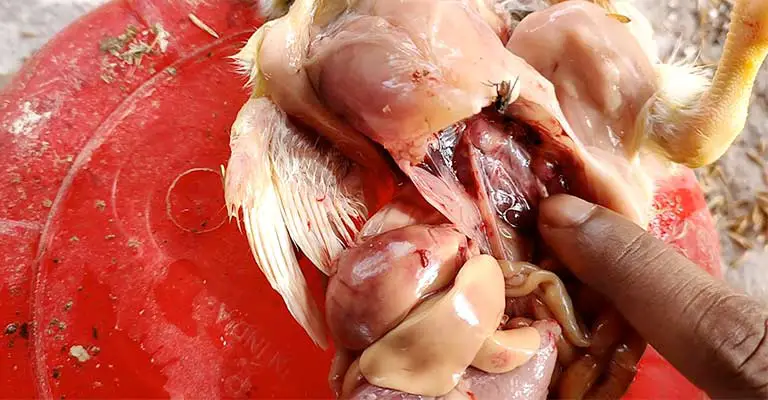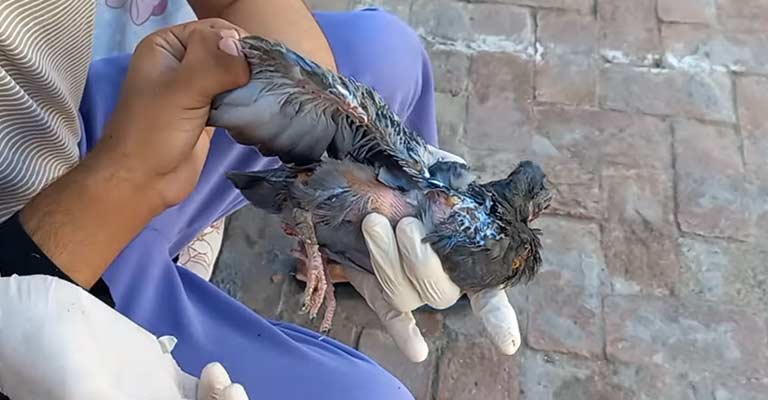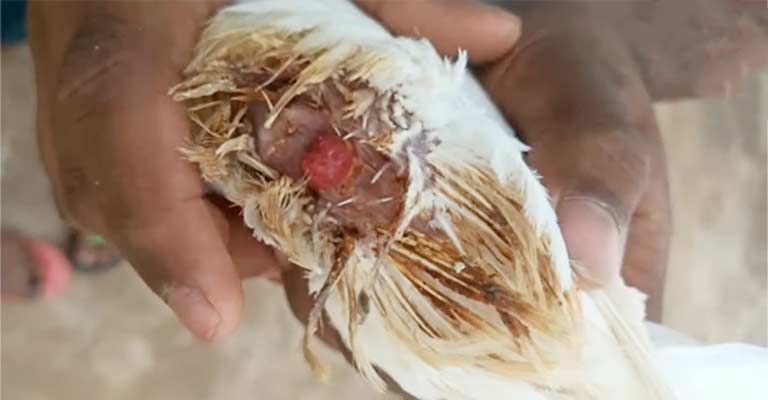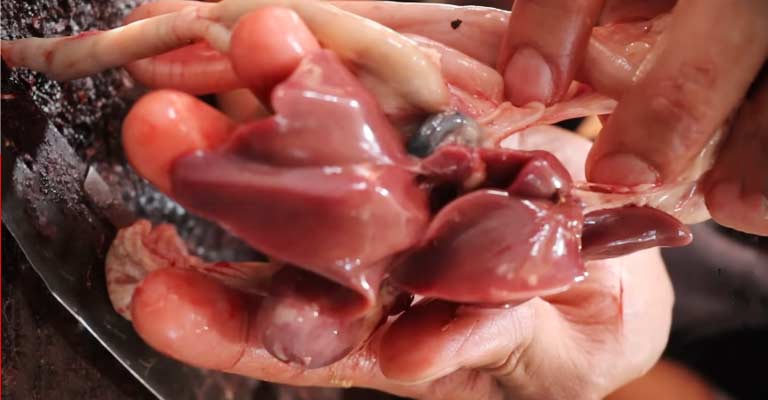In the intricate tapestry of avian health, kidney and urinary tract disorders stand as significant challenges for bird owners and caregivers. Birds, with their unique physiology, are susceptible to a range of ailments affecting these vital systems.
kidney and urinary tract disorders in birds can manifest through various symptoms, impacting a bird’s overall well-being.
From increased thirst and changes in droppings to more severe signs like lethargy and difficulty in breathing, these disorders demand prompt attention and specialized care.
Understanding the diverse array of symptoms and treatments is essential for bird enthusiasts to ensure the health and longevity of their feathered companions.
In this exploration, we delve into the nuances of kidney and urinary tract disorders in birds, shedding light on symptoms, treatments, and the importance of early detection.

Kidney And Urinary Tract Disorders In Birds
Birds, like any other living beings, are susceptible to various health disorders, and their kidney and urinary tract can be particularly vulnerable. These avian ailments can manifest in different ways, affecting their overall well-being and potentially leading to severe consequences.
Here are the types of kidney and urinary tract disorders in birds:
Renal Tubular Dysfunction
Renal tubular dysfunction in birds can result from damage to the tubules responsible for reabsorbing vital substances. This disorder can lead to electrolyte imbalances, affecting the bird’s ability to regulate its internal environment.
Clinical signs may include increased thirst, excessive urine production, and changes in droppings.
Nephritis
Nephritis, or inflammation of the kidneys, can be caused by infections, toxins, or autoimmune reactions. Birds with nephritis may exhibit lethargy, decreased appetite, and swollen kidneys.
Diagnosing the underlying cause is crucial for effective treatment.
Urolithiasis
Urolithiasis is characterized by the formation of urinary stones within the urinary tract. Birds may experience difficulty in passing urine, leading to straining during elimination. This condition can be associated with diet, genetics, or infections.
Gout

Avian gout is a metabolic disorder that results in the deposition of uric acid crystals in various tissues, including the kidneys.
Birds with gout may display joint swelling, lameness, and visceral organ involvement. It is often linked to an imbalanced diet or genetic predisposition.
Amyloidosis
Amyloidosis occurs when abnormal protein deposits, known as amyloids, accumulate in the kidneys. This condition can impair kidney function and lead to organ failure. Affected birds may exhibit weight loss, fluid retention, and changes in plumage.
Polyuria and Polydipsia
Polyuria (excessive urine production) and polydipsia (increased thirst) are symptoms rather than disorders, but they can indicate underlying kidney issues.
Various conditions, including renal infections or tumours, may present with these signs, emphasizing the need for a thorough diagnostic evaluation.
Nephrotoxicity
Nephrotoxicity refers to kidney damage caused by exposure to toxins or certain medications. Birds can be particularly sensitive to substances harmful to their kidneys. Identifying and removing the source of toxicity is crucial for the bird’s recovery.
What Are Some Symptoms Of Kidney And Urinary Disorders In Birds?

Birds, being intricate creatures, can experience a range of health issues, with kidney and urinary disorders posing potential threats to their well-being.
Here are the symptoms associated with kidney and urinary disorders in birds:
Increased Thirst (Polydipsia)
One prominent sign of kidney and urinary disorders in birds is polydipsia or increased thirst. Affected birds may excessively consume water due to the kidneys’ compromised ability to concentrate urine properly. This heightened thirst is often accompanied by an increase in urine production.
Excessive Urine Output (Polyuria)
Polyuria, or the excretion of unusually large amounts of urine, is another common symptom of kidney and urinary tract disorders. Birds may exhibit frequent and copious urination, often leading to changes in the consistency and colour of their droppings.
Lethargy and Weakness
Birds suffering from kidney and urinary issues may display lethargy and weakness. The metabolic imbalances resulting from these disorders can lead to a decrease in overall energy levels, affecting the bird’s activity and engagement.
Changes in Droppings
Alterations in the appearance of droppings can signal underlying kidney problems. Birds with kidney disorders may produce droppings with abnormal colour, consistency, or frequency. Observing and noting changes in droppings is crucial for early detection and diagnosis.
Swollen Abdomen
An enlarged or swollen abdomen is a symptom that may indicate kidney and urinary tract disorders in birds. This can result from fluid retention due to impaired kidney function. The swelling may be visible and palpable, drawing attention to the underlying health issue.
Difficulty in Breathing
In severe cases of kidney disorders, birds may experience difficulty in breathing. This can occur due to the accumulation of fluid in the body, including the respiratory system. Laboured breathing is a critical sign that necessitates immediate veterinary attention.
Changes in Appetite
Kidney and urinary disorders can impact a bird’s appetite. Affected individuals may exhibit a decrease in food intake, leading to weight loss over time.
Changes in eating habits, especially a sudden loss of interest in food, should prompt a thorough examination by an avian veterinarian.
What Are The Treatments For Kidney And Urinary Disorders In Birds?

Addressing kidney and urinary disorders in birds requires a tailored approach, as these conditions can arise from various causes. Treatment strategies aim to alleviate symptoms, manage underlying causes, and support overall avian health.
Here are seven common treatments for kidney and urinary disorders in birds:
Fluid Therapy
Fluid therapy is a cornerstone in managing kidney and urinary disorders in birds. Administering fluids helps correct dehydration resulting from increased urine output and supports renal function.
This may involve intravenous or subcutaneous fluid administration, providing essential electrolytes and aiding in the elimination of toxins.
Dietary Modifications
Modifying the bird’s diet is crucial in managing kidney disorders. Specialized avian diets with reduced protein and phosphorus content may be recommended to lessen the burden on the kidneys.
Additionally, ensuring a well-balanced diet supports overall health and aids in preventing further complications.
Medication for Infections
If a bacterial or viral infection is identified as the cause of kidney issues, veterinarians may prescribe antibiotics or antiviral medications. Targeting the specific infectious agent helps resolve the underlying problem and prevents further damage to the kidneys.
Urolithiasis Management
For birds experiencing urolithiasis, treatment involves addressing the formation of urinary stones. Dietary adjustments to prevent stone formation, along with medications to dissolve or assist in passing stones, may be employed.
Surgical intervention could be necessary in severe cases to remove large stones.
Anti-inflammatory Medications
Inflammation of the kidneys, such as in cases of nephritis, may be managed with anti-inflammatory medications. These drugs help reduce swelling, alleviate pain, and limit further damage to the renal tissue.
However, the underlying cause of inflammation must also be addressed for comprehensive treatment.
Gout Management
Managing avian gout involves addressing the underlying cause, such as dietary imbalances. A low-protein diet and medications to reduce uric acid levels may be prescribed.
Supportive care, including pain management and joint supplements, can help improve the bird’s quality of life.
Toxin Removal and Avoidance
In cases of nephrotoxicity, identifying and removing the source of toxins is paramount. Supportive measures, such as fluid therapy and medications to enhance toxin elimination, may be employed.
Preventative measures, including environmental changes to minimize toxin exposure, are crucial for long-term management.
Understanding the specific causes of kidney and urinary disorders is crucial for tailoring an effective treatment plan.
Close collaboration with an avian veterinarian ensures a comprehensive approach to address the underlying issues and improve the overall health and well-being of the affected bird.
FAQs
Can dietary factors contribute to kidney and urinary tract disorders in birds?
Yes, dietary imbalances, especially high protein or phosphorus intake, can contribute to these disorders. Specialized avian diets with reduced protein content may be recommended to alleviate stress on the kidneys.
How are kidney infections in birds treated?
Kidney infections in birds are typically treated with antibiotics or antiviral medications, addressing the specific infectious agent responsible for the condition. Veterinary consultation is essential for proper diagnosis and treatment.
Are kidney and urinary tract disorders preventable in birds?
While some factors may be genetic, preventive measures include providing a well-balanced diet, ensuring access to clean water, and minimizing exposure to potential toxins. Regular veterinary check-ups can aid in early detection and prevention.
Can kidney stones be dissolved in birds?
In some cases of urolithiasis, medications may be prescribed to dissolve or assist in passing urinary stones. Dietary adjustments to prevent stone formation are also crucial. Severe cases may require surgical intervention for stone removal.
Is there a specific age range when birds are more susceptible to kidney and urinary tract disorders?
Birds of all ages can be susceptible to these disorders. However, older birds may be more prone to age-related changes. Regular veterinary check-ups, regardless of age, help in monitoring and addressing potential health issues.
Conclusion
In the realm of avian health, recognizing and addressing kidney and urinary tract disorders is pivotal for ensuring the longevity and vitality of our feathered friends.
The diverse array of symptoms, from polydipsia to changes in appetite, underscores the complexity of these conditions.
Timely intervention and a tailored treatment approach involving fluid therapy, dietary modifications, and targeted medications play a crucial role in mitigating the impact of these disorders.
Bird owners and caregivers must remain vigilant, observing changes in behaviour and droppings, and seek prompt veterinary care when needed.
As we navigate the intricacies of avian health, a proactive stance in managing kidney and urinary tract disorders contributes to the overall well-being of our avian companions, fostering a harmonious and healthy bond between birds and their caretakers.